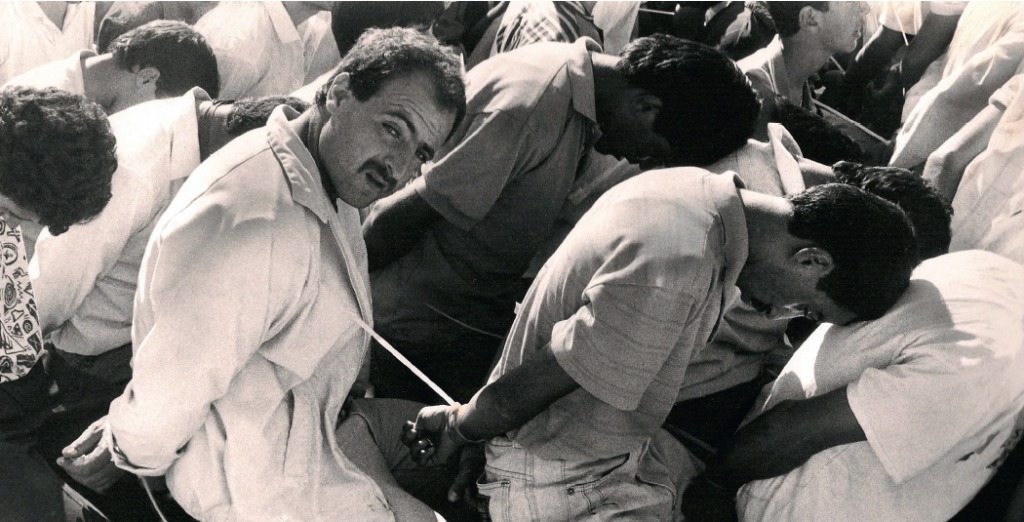- About
- Topics
- Picks
- Audio
- Story
- In-Depth
- Opinion
- News
- Donate
- Signup for our newsletterOur Editors' Best Picks.Send
Read, Debate: Engage.
| August 17, 2018 | |
|---|---|
| topic: | Political violence |
| tags: | #Afghanistan, #Abdul Rasheed Dostum, #war crimes |
| located: | Afghanistan, Turkey |
| by: | Shadi Khan Saif |
The 63-year-old continues to hold significant clout among the country’s ethnic Uzbek minority despite being charged by many within the community for murders, rapes and torture. And, in views of many observers, it was the sheer pressure by his supporters who forced the Kabul government to allow him entry back to the office of the Vice President on Sunday 22 July on top of the pending case of sexual assault filed against him by one of his former party mates, Ahmad Ishci.
Thousands of Dostum’s Junbish-e-Milli loyalists paralysed the government in at least five of Afghanistan’s 34 provinces for weeks by forcefully closing down public offices, drying ports linking the land-locked country with the Central Asian states, and closing private businesses in demand for his return.
Warmly welcomed by charged and chaotic crowds of supporters at the Hamid Karzai International Airport in Kabul, Dostum was rushed in a convoy of armoured vehicles escaping a suicide attack to his office inside the supposedly secured ‘green zone’. In his maiden speech at the welcome home ceremony, Dostum called on his supporters to remain calm and end their protests. “We created this system (of governance) and we will protect it at any cost, but it was also our duty to criticise the weakness of the government in a constructive manner and introduce reforms,” he said in an evident sullen tone.
In a latest report, the New York Times shared the views of a long-time former personal chauffeur of Gen. Dostum, Saleh Mohammad Faizi, from a refugee housing in Austria, where the authorities have granted him asylum because he was under threat from the general, whom he served for 23 years. He said he fell out with General Dostum when he refused to marry the general’s girlfriend, whom he described as a 15-year-old girl, in order to provide a discreet means for Dostum to see her. General Dostum already had two wives, who would not consent to his taking a third one, Mr. Faizi said, charging the VP for repeatedly raping and torturing him. He also accused General Dostum of killing his first wife, Khadija, and of numerous rapes of political opponents as well as underage boys and girls.
Paving way for his return, the massive protests in areas with significant clout of the Junbish party were sparked by the arrest of a local warlord, Nezamuddin Qaisari, a district police chief and close aide to Dostum in Faryab province. Qaisari has been charged by the locals for rape, murders and can also be seen in a viral video threatening to execute security officials.
The government dominated by technocrats in Kabul has described this arrest as part of the comprehensive actions nationwide against warlords and mafias.
However, the Junbish party, sees all these actions and allegations as politically motivated. One of party spokesmen, Bahruddin Jawzjani, a senior advisor to the Junbish party, believed arrest of Qaisari demonstrates the alleged ‘fascist’ approach by the government against the Uzbeks. “Many other individuals who have even fought against the government have been treated well and even hosted at the presidential palace, but commander Qaisari has been victimised”.
In eyes of many observer, such as political commentator Yonus Fakoor, the Afghan government under the leadership of President Mohammad Ashraf Ghani – a former World Bank economist – was short of any other viable options than Dostum in the build-up to the presidential elections scheduled for 2019. “The opposition of the government is desperately trying to make him (Dostum) join them and form a front particularly in the north”, he said, adding this fear might force the government to completely roll-back of halt, for now, the campaign Ghani has initiated against warlords and armed militias in the country.
In the backdrop of this political wrangling, the Afghans are set to go for the long-due parliamentary elections later this year in October amid lingering security concerns.
By copying the embed code below, you agree to adhere to our republishing guidelines.

